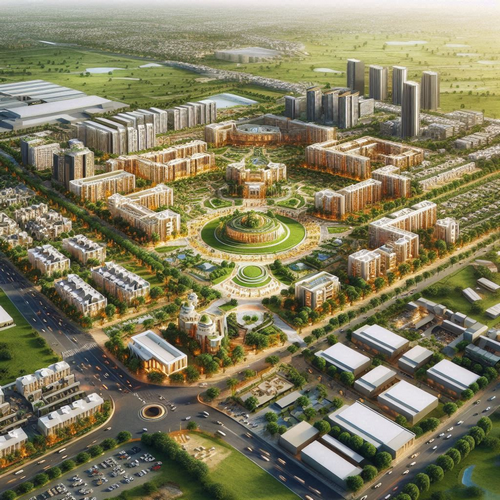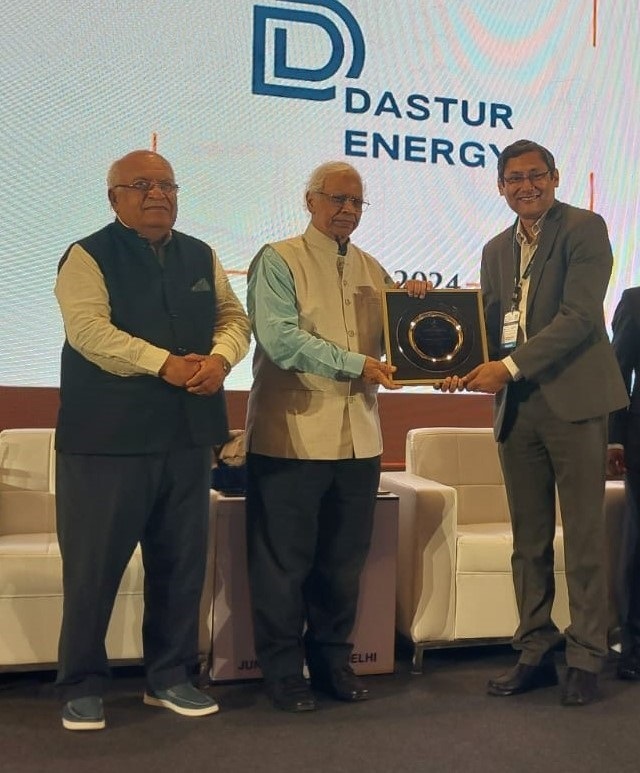By – Akash Pharande, Managing Director – Pharande Spaces

I travel a lot to understand how different countries address their urban sprawl because we use such insights to design integrated townships here in India. In fact, one result of these travels was our partnering with a globally acclaimed architect who helped us recreate a global residential experience in India.
However, my main takeaway from this globetrotting has been far less positive – the alarming rate at which rampant urbanization is challenging even the most glamorous world cities.
As cities’ populations overflow, traditional urban infrastructure groans and often crumbles under the strain of housing demands. Did you think that overcrowding and declining living standards are the order of the day only in India? Far from it – it is a global phenomenon.
The Global Scenario
In the thronged streets of New York, Tokyo, and Hong Kong – and even in Berlin, Hamburg, and Stockholm – urban sprawl running wild is in evidence everywhere. In India, we have accepted congestion, pollution, and stressed infrastructure, but be aware that very few countries are exempt from them anymore.
Across the world from Asia to Europe to North America, local governments and expert city planners are implementing the only viable solution. You guessed it – integrated townships.
In Singapore and the United Arab Emirates, self-sufficient, self-contained integrated projects have in fact been at the forefront of urban planning for many decades. Singapore, in particular, is famous for master-planned communities such as Punggol and Tampines, which integrate residential, commercial, and recreational facilities to create vibrant and self-sustaining neighborhoods.

In the UAE, integrated developments like Dubai Marina and Masdar City deliver comprehensive living and working environments for residents. In Europe, Sweden and the Netherlands have embraced the concept of integrated townships to promote sustainable urban development.
Stockholm and Amsterdam have pioneered eco-friendly neighbourhoods that prioritize walking, cycling, and public transportation while incorporating green spaces and mixed-use developments.
In North America, integrated townships have gained traction in response to urban sprawl and the growing trend for more walkable and inclusive communities. Vancouver in Canada and Portland in the United States have implemented policies to encourage mixed-use development and compact urban forms.
This approach has given rise to highly integrated neighborhoods that provide everything their residents will ever need – living spaces, offices to work in, as well as shopping malls and recreational amenities.
Integrated Living – No Alternatives
If this sounds like a marketing prospectus for a modern integrated township in India, it’s because while we certainly haven’t pioneered the concept, we have certainly caught on to it big time. And for good reasons.
A report by international property consultants JLL India entitled ‘Livability quotient – a paradigm shift in India’s emerging cities’ puts it very aptly – “A balanced lifestyle contributes highly to the livability quotient of a city or township,” it states. “Amenities for leisure and recreation such as sports facilities, gymnasiums, clubhouses, malls and shopping streets are considered lifestyle amenities and are much appreciated by users.”
“Townships managed by private developers have an advantage over cities managed by local governments. The high level of interaction that happens between a township developer and customers naturally enables a focused delivery of services.”
I guess there’s no better way of putting it. As our larger cities draw more and more inward migration because of their employment prospects, we certainly need better solutions to house everyone. India’s growing upper-level middle class expects to find housing that multi-tasks and delivers on their lifestyle preferences.
What better solution for this than integrated mixed-use developments where they can seamlessly transition between living, working, and leisure activities without enduring long commutes?
As the successful eco-cities of Scandinavia and the master-planned communities of Singapore and the UAE demonstrate, integrated townships are a concept whose time has come – and is, in fact, by now an imperative in India.

A Long Way to Go
As Anarock Property Consultants put it, the growing demand for integrated townships in India has risen even more in the wake of changing housing preferences post-pandemic. However, despite the increased interest, integrated townships still represent only a fraction of the total housing supply in India. Since 2010, only about 2% of all housing projects in the top seven cities fell in this category,
Clearly, we are missing something important here.
India is a nation at a crossroads in its urbanization journey. Rapid population growth, rural-urban migration, and fragmented urban planning have spawned a host of challenges, from sprawling urban sprawl to choked traffic arteries and polluted air. The need for holistic urban planning has never been more pressing.
Integrated townships offer hope amidst this urban chaos. With the government’s ambitious plans to create smart cities and revitalize urban infrastructure in a country where land scarcity, fragmented development, and outdated infrastructure are the norm, there is quite simply no other solution.
Without integrated townships, the status quo in India is frankly unsustainable. With every passing year, our trajectory of urbanization is spiraling further out of control – with far-reaching consequences on our society, our environment, and our economy.
Beyond just bricks and mortar, integrated townships also serve as catalysts for economic growth and building strong, wholesome and supportive communities. They provide local employment opportunities, reduce dependence on city centers, offer higher returns on investment, and provide a holistic solution to the many challenges we face in our cities.
About the Author:
Akash Pharande is Managing Director – Pharande Spaces, a leading real estate construction and development firm famous for its township projects in West Pune and beyond. Pharande Promoters & Builders, the flagship company of Pharande Spaces and an ISO 9001-2000 certified company, is a pioneer of townships in West Pune. With the recent integration of Puneville Commercial into one of its most iconic townships, Pharande Spaces taken a major step towards addressing Pune’s current and future requirements for fully integrated residential-commercial convenience.




